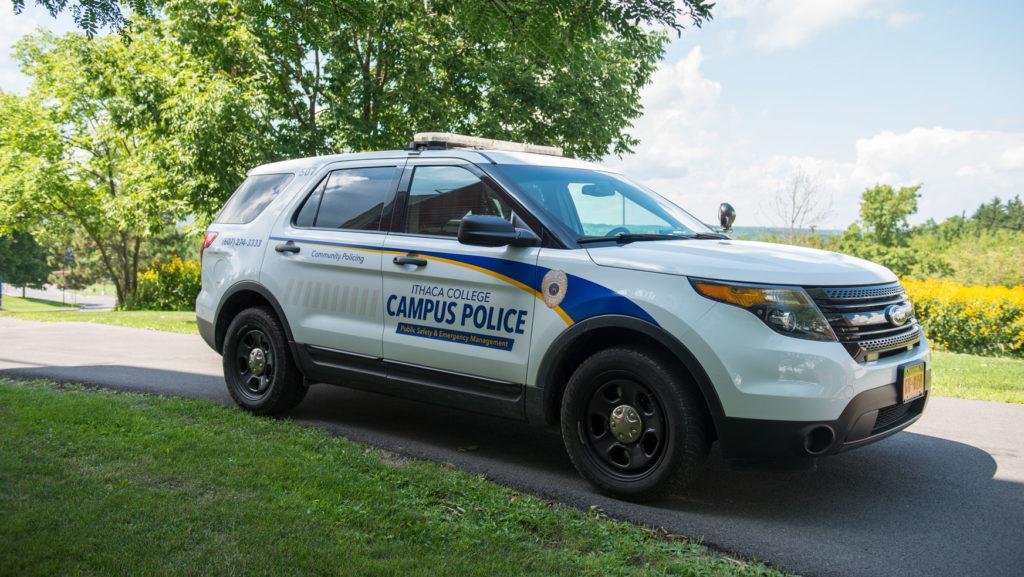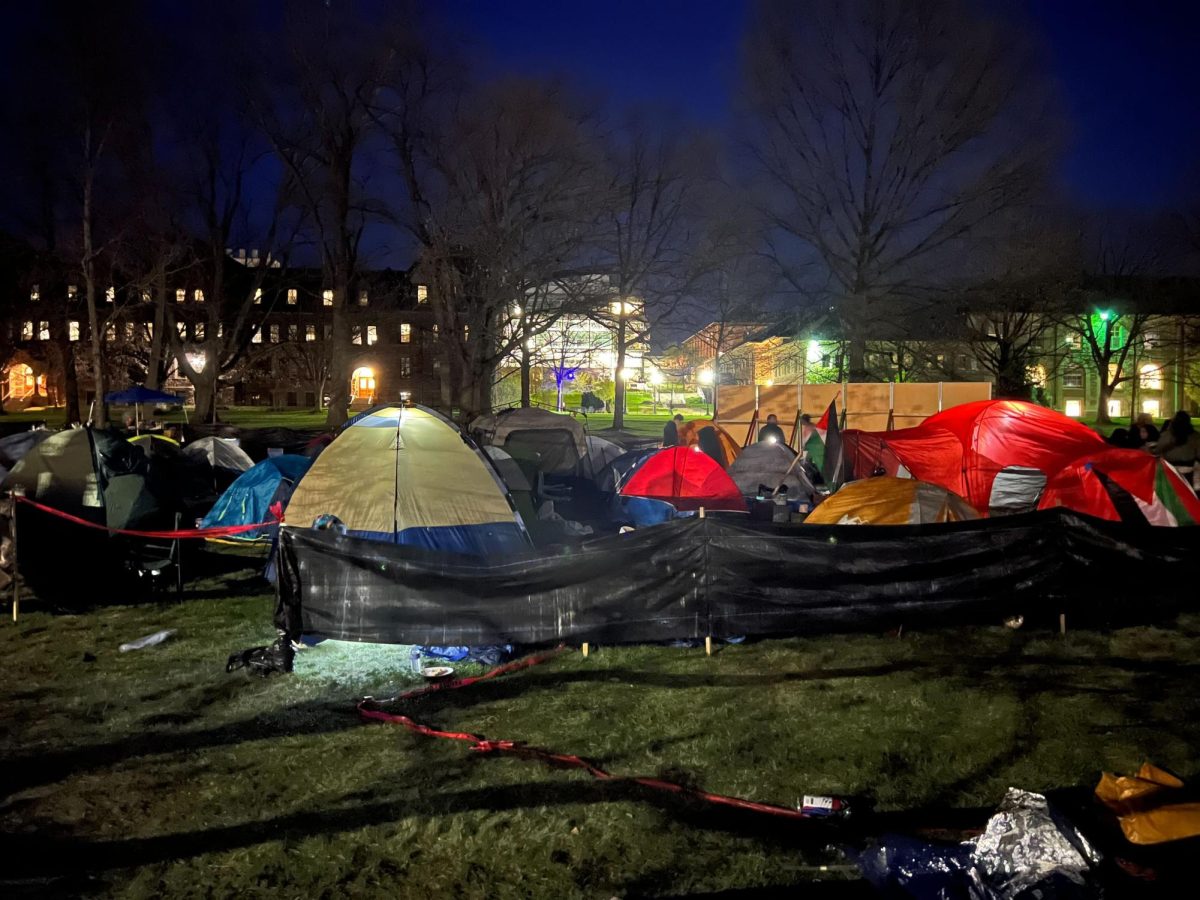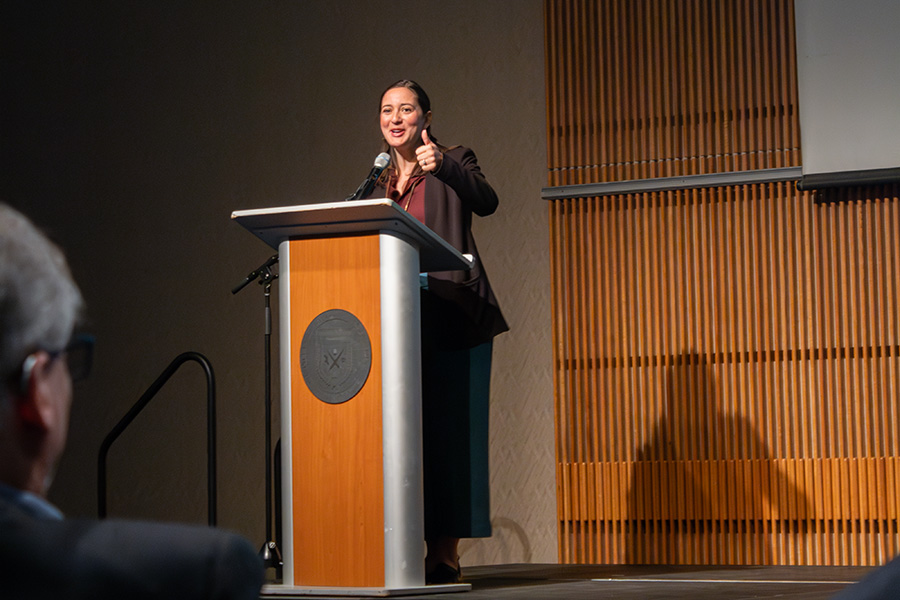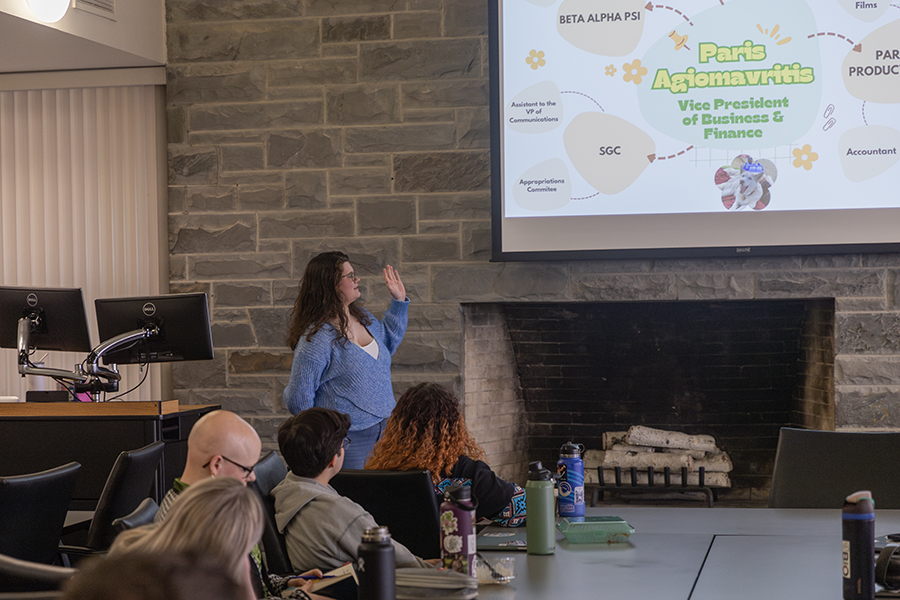Ithaca College’s Office of Public Safety and Emergency Management published the Annual Security and Fire Safety Report on Sept. 25, which shows an increase in reported rapes and drug violations and a decrease in burglary and weapon possession in 2017.
The college, in compliance with the “Clery Act”, is required to publish this information by Oct. 1 of every year. The report includes security policies and crime statistics in addition to fire safety policies and related crimes. In 2017, there was an increase in reported rapes, as well as drug and liquor law violations, but a decrease in burglary, arson and dating violence in comparison to the last five years. An increase or decrease in numbers could be attributed to a multitude of reasons. The increase in drug and alcohol violations could also imply that there is a growing awareness and education on the issue, Public Safety Lieutenant Tom Dunn said.
There were eight reported rapes in 2017, compared to the five in 2016 and four in 2014, all of which took place on campus. In both 2013 and 2015, there were no reported incidents of rape.
The college has been working to create a culture in which survivors feel comfortable coming forward and reporting, Title IX Coordinator Linda Koenig said. She said she thinks this culture could indicate why the number of reports has increased over the years.
“While reports have increased, we do not believe incidents have increased,” Koenig said. “In addition to the efforts we make at IC through our outreach and education, nationally, we are seeing increased reporting behavior that sometimes comes from incidents that occurred in previous semesters.”
The FBI annual crime report, released in late September, found a 19.4 percent increase in reported rapes since 2013. The FBI’s definition of rape has recently been extended to include multiple forms of sexual assault.
Between May 2017 and May 2018, New York City saw an increase in the number of reported rapes by 49.6 percent, according to the NYPD.
Reports of dating violence have decreased on campus. In 2013, there were six reports. In 2014, there were two, and in 2015, there were three. There have been no reports of dating violence in the last two years.
There recently has been a number of dating violence awareness and prevention events offered on campus over the last year. Additionally, the Title IX office has teamed up with the Office of Intercollegiate Athletics and IC One Love club — a chapter of the national organization committed to raising awareness about sexual assault and abusive relationships — to facilitate “Escalation Workshops,” which help students identify signs of dating violence and promote healthier relationships on campus, Koenig said.
In 2015, there were two reports of domestic violence, and in 2017, there were eight. In both 2013 and 2014, there was one report of fondling. In both 2016 and 2017, there were two reports of fondling each year. In the years 2013 and 2016, there were single cases of statutory rape reported each year.
Burglaries reports on campus have significantly decreased. There were seven burglaries reported in 2017. In 2013, there were 36 reported incidents of burglary. In 2014, there were 26. In 2015, there were 13, and in 2016, there were 12.
There has also been an increase in drug abuse violations. In 2017, there were 321 violations and eight drug violation arrests made compared to 268 violations and 16 arrests in the previous year. In 2013, there were 181 violations and five arrests.
Dunn said he thinks the data reflects a multitude of changes in the college’s culture.
“When looking at statistical numbers, if a certain number appears to be higher, especially in the case of alcohol violations or sexual assault, that can mean a school is doing a good job of identifying and reporting, and a low number might mean there is a lack of reporting,” Dunn said.
Weapon violations reports have also decreased over the last five years. There were three reported violations in 2017. There were four in 2016. In 2015 and 2013, there were eight.
Liquor, drug and weapon violations are criminal offenses in New York state, and the college acknowledges those laws. Students often do not bring firearms onto campus, but items such as paintball and pellet guns that are also defined as weapons are sometimes brought to campus, Dunn said.
“People inadvertently bring their paintball gun to campus not knowing we take possession, and when they go to return home, they get it back,” Dunn said. “Often it is just a lack of awareness. That’s what these decreases are.”








